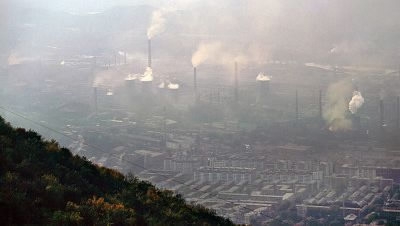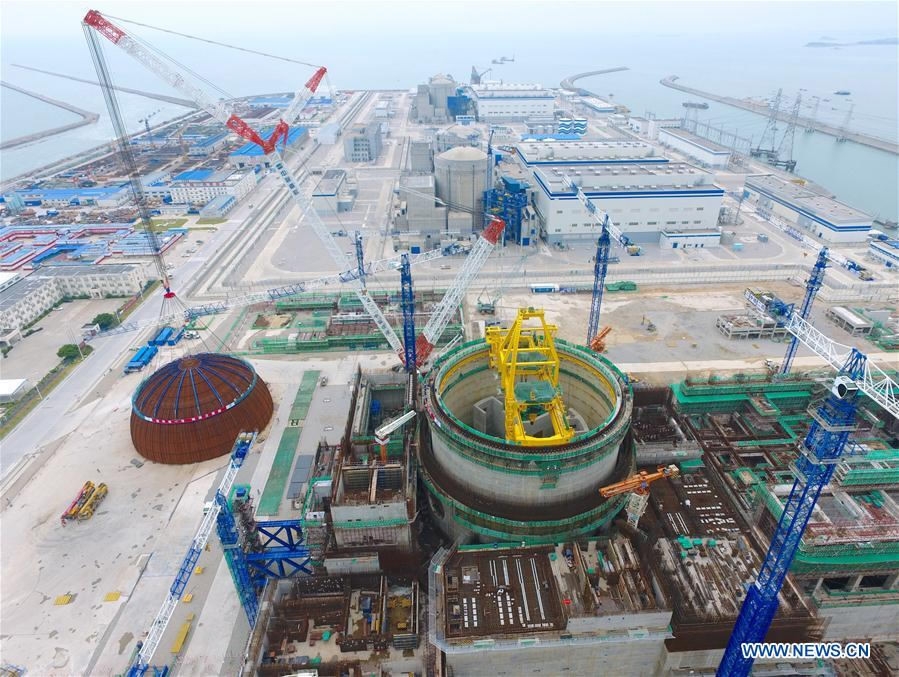
Tech & Sci
15:01, 02-Jan-2018
China enforces environment tax and nuclear safety law
Alok Gupta

China on Monday enforced laws related to environment protection tax (EPT) and nuclear safety.
While the former replaces outdated pollutant discharge fee, latter focuses on nuclear plants safety guidelines mentioned under international treaties.
The new environment tax is aimed at curbing air, water, soil, noise pollution and solid waste disposal in the country. Polluting units will be liable to pay 1.2 to 12 yuan for emitting .95 kg of sulfur dioxide, one of the significant components of air pollution.
A tax of 1.4 yuan for per 4 kgs will be charged for suspended solids for water pollutants, and 5 to 1,000 yuan will be the charge for one ton of solid waste.
Industrial units are liable to pay a tax in the range of 350 to 11,200 yuan on a monthly basis to control noise pollution depending on the decibel level.
In an attempt to ensure effective implementation of the EPT, the government has allowed local governments to keep all the revenue collected through the new tax. Local authorities have also been empowered to fix the tax rate under the law.
“Some provinces like Beijing have opted for the higher values, but many have chosen the low end of the range,” Lauri Myllyvirta, air pollution specialist at Greenpeace, Beijing told CGTN.
According to China Development Forum report China will have to invest nearly 2.8 trillion US dollars till 2020 to fix the pollution issue.
Nuclear Safety Law comes into force

Staff members prepare for the dome installation at No. 5 unit of Fuqing Nuclear Power Plant in Fuqing, southeast China's Fujian Province, May 25, 2017. /Xinhua Photo
Staff members prepare for the dome installation at No. 5 unit of Fuqing Nuclear Power Plant in Fuqing, southeast China's Fujian Province, May 25, 2017. /Xinhua Photo
China also implemented Nuclear Safety law today to ensure minimum risks from nuclear accidents and public disclosure of disposal and information about radiation.
The National Nuclear Safety Administration (NNSA) has established procedures mentioned under international treaties for nuclear plants and reactors.
According to Ministry of Environment protection, the Environment Protection and Resources Conservation Committee of the NPC organized a symposium right before the nuclear safety law enters into force on Jan. 1.
Vice Chairperson of the NPC Standing Committee Shen Yueyue, during the symposium, said the law embodies the outlook proposed by President Xi Jinping on national security. It wraps up the useful practices and experience in nuclear safety management over the past three decades.
“It is a practical measure to improve the legal framework on national security and promote comprehensive governance by law," he stated. "It is imperative to be fully aware of the significance of this law, enhance nuclear culture development, and strengthen nuclear regulation under the protection of the law.”
According to International Atomic Energy Agency (IAEA) China tops the world regarding under construction nuclear reactors. The country has 38 operational nuclear power reactors and 19 under construction.
Russia with seven and India with six under construction nuclear reactors are ranked second and third respectively. The USA has the highest number of reactors in operation followed by France, Japan, and China.
China is working towards increasing nuclear power generation from 35 gigawatts to 58 gigawatts by the end of 2020.

SITEMAP
Copyright © 2018 CGTN. Beijing ICP prepared NO.16065310-3
Copyright © 2018 CGTN. Beijing ICP prepared NO.16065310-3